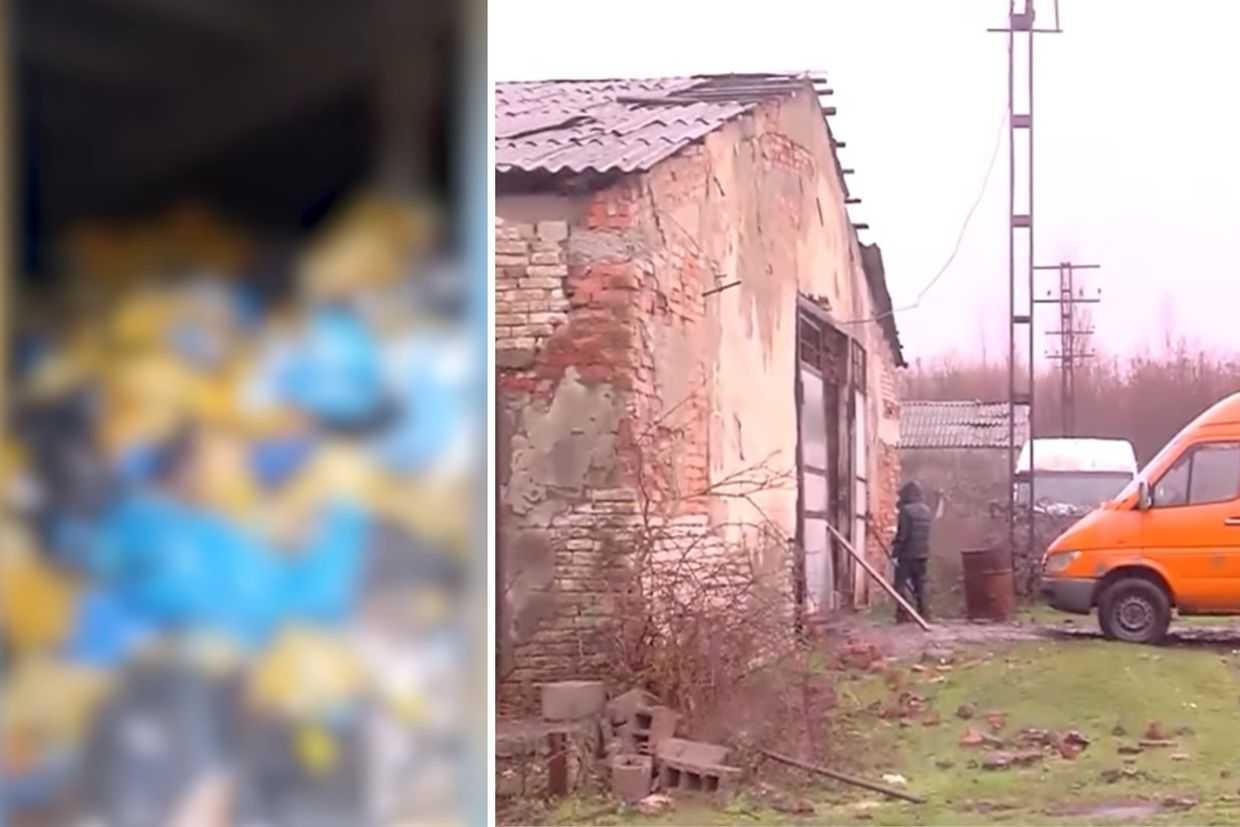
A ‘permanent protest’ by the family of a man who died in police custody in the South Ossetian capital has entered its 18th day, receiving widespread public support.
Relatives of Inal Dzhabiyev have erected a makeshift camp on Theatre Square in the centre of Tskhinvali (Tskhinval).
Dzhabiyev, a 30-year-old father of three, died on 28 August in police custody. The public learnt of his death after images of his body with large bruises on it was leaked from the hospital in Tskhinvali where police delivered him earlier that day.
Dzhabiyev was arrested on suspicion of involvement in an assassination attempt on Interior Minister Igor Naniyev. According to officials, Naniyev’s car was shot at in Tskhinvali on 17 August.
Dzhabiyev’s widow, Oksana Sotiyeva, and his mother, Mayya Dzhabiyeva, have called for the Interior Minister to be indicted and for Prosecutor General Uruzmag Dzhagayev to resign.
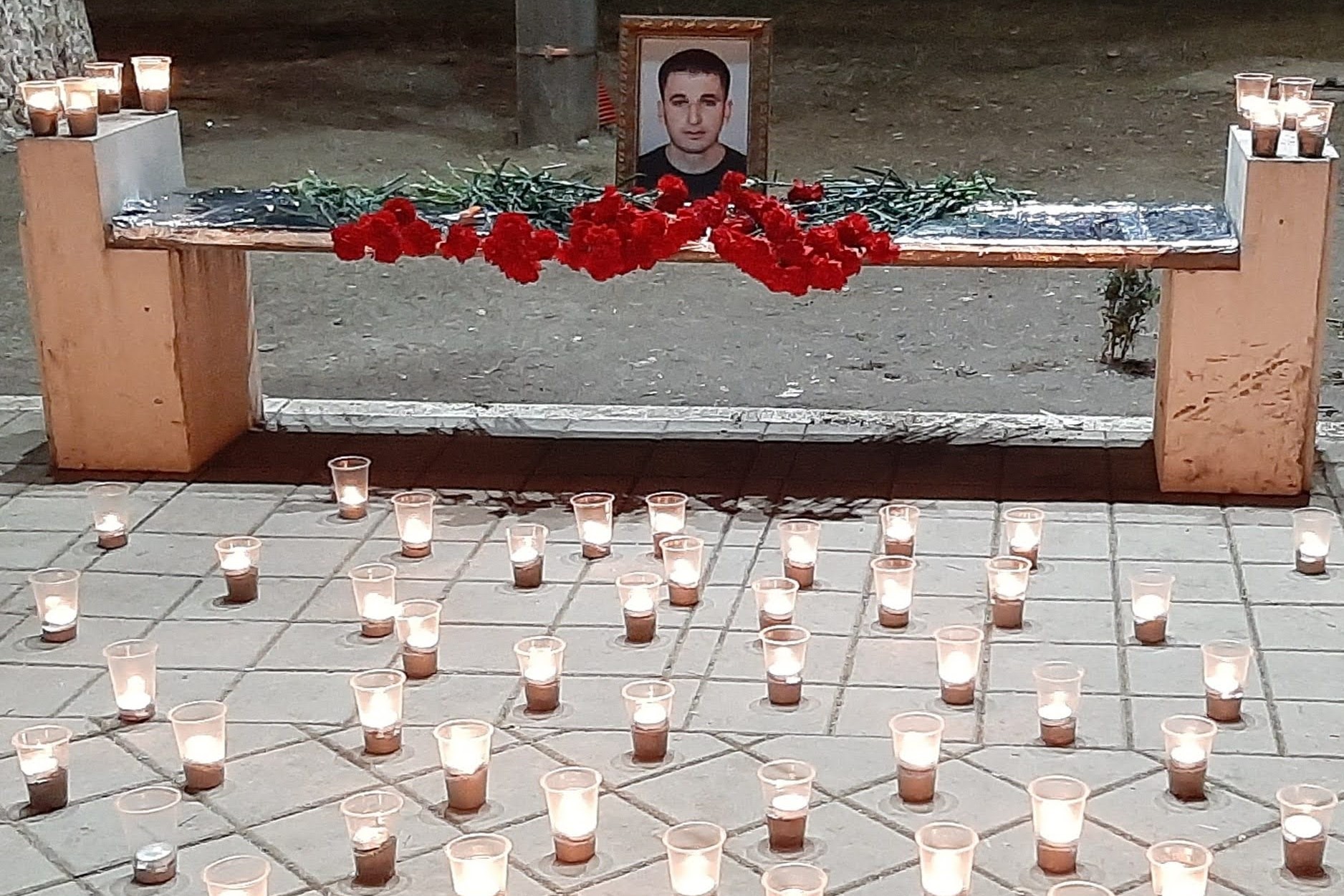
On 21 December, the Interior Ministry said they had detained Inal Dzhabiyev’s twin brother, Atsamaz Dzhabiyev, for extortion.
They have accused him of attempting to extort 60 litres of petrol from another resident of Tskhinvali. The charges, which came just two weeks after Atsamaz Dzhabiyev confronted acting Interior Minister Merab Pukhayev over his brother’s death, were met with widespread condemnation.
Two days after the confrontation, Russian state-run outlet Sputnik Ossetia reported that the Prosecutor-General’s Office had put Atsamaz Dzhabiyev on a wanted list for ‘offending the authorities’, however, the charges were not initially pursued.
Cross-Ossetian public support
The protests that erupted on 28 August forced South Ossetian PM Erik Pukhayev — and effectively, the whole government cabinet — into resignation, something also followed by a still-ongoing boycott of the Parliament as most of MPs demand top law enforcement resignations.
Unlike previous mass demonstrations in late August and September, the pickets by relatives have been smaller but permanent, regularly visited by groups of local residents. It has also been closely watched and discussed by Ossetians on social media.
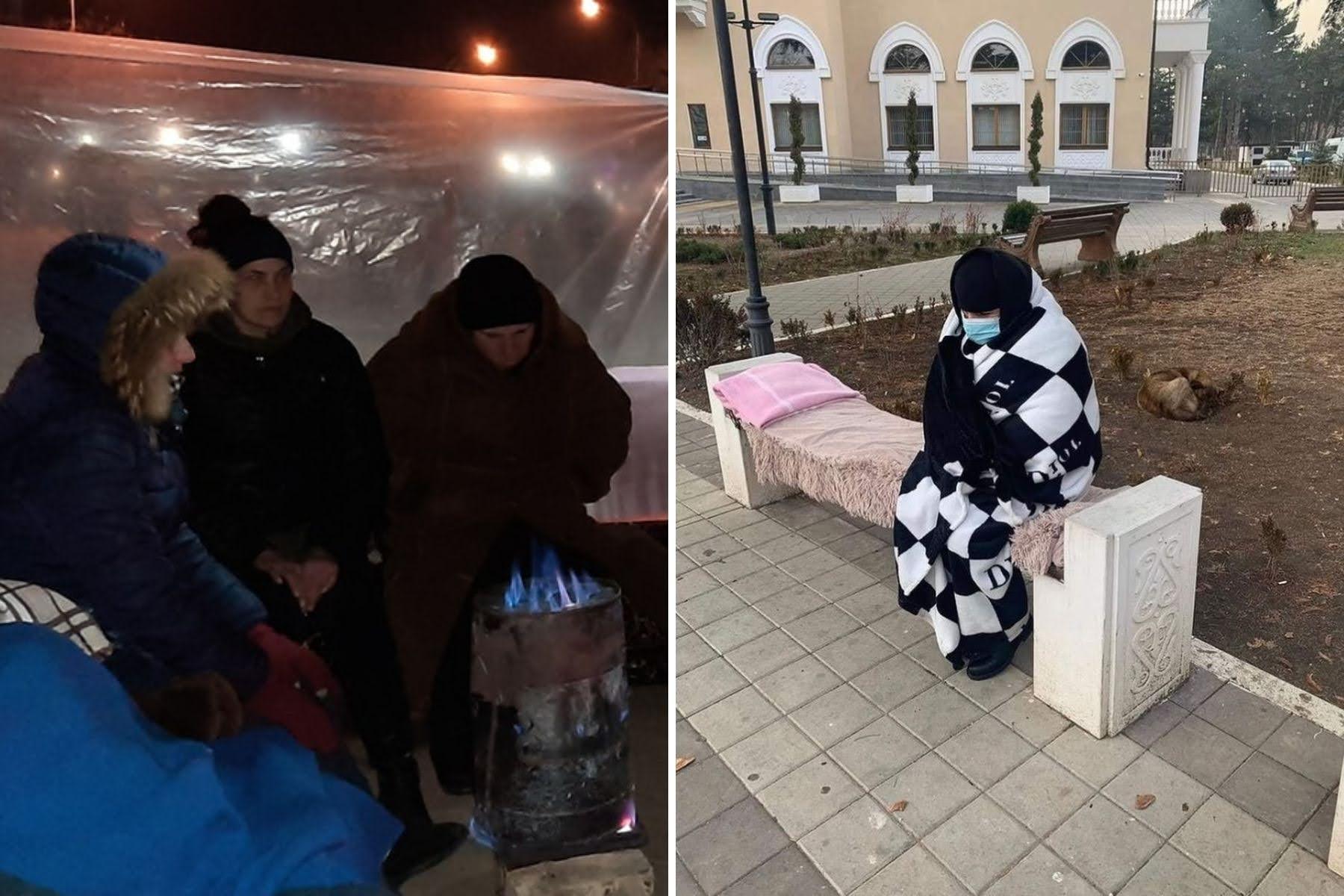
Law enforcement agencies initially tried to stop the demonstration, warning on 4 December that it was in breach of anti-coronavirus restrictions.
Since 4 December, police officers tried several times to dismantle a makeshift tent set up to help protesters fight the cold. Video from 17 December by Inna Tskhovrebova.
Over the last two weeks, the Theatre Square has hosted from 30 to 200 people at a time, with many visiting Dzhabiyev’s family in solidarity.
The public support has also spilt into the Russian republic of North Ossetia — Alania.
On 11 December, prominent North Ossetian journalist Ruslan Totrov called Oksana Sotiyeva the ‘quintessence of Ossetian popular protest’ and reprimanded the local authorities and state-run media for ignoring the protest.
Other Vladikavkaz-based public personalities including woman rights advocate Agunda Bekoyeva and popular blogger Alik Pukhayev followed suit in praising the protesting women in Tskhinvali.
Russian forensic report doubted
Oksana Sotiyeva announced the permanent protest in Tskhinvali on 3 December. She claimed that the authorities had tried to denigrate his late husband’s name instead of punishing those responsible for his death.
On 18 November, the South Ossetian government cited medical examination by the Russian Defence Ministry that concluded the 18 traumatic injuries on Dzhabayev’s body would not have caused his death.
According to the Russian forensic report, Dzhabiyev died due to ‘sudden cardiac arrest’, a complication that allegedly followed his withdrawal from methadone.
The Prosecutor General’s Office insisted that the eight police officers they had detained over the case would still face justice, but the report suggested they could now be given lighter charges than murder by torture.
The Russian report was widely doubted by supporters of Dhzabiyev’s family.
It also contradicted the conclusion of Zarina Dzagoyeva, a forensic expert at the South Ossetian Health Ministry who on 16 December claimed Dzhabiyev’s heart failure was caused by the injuries he sustained.
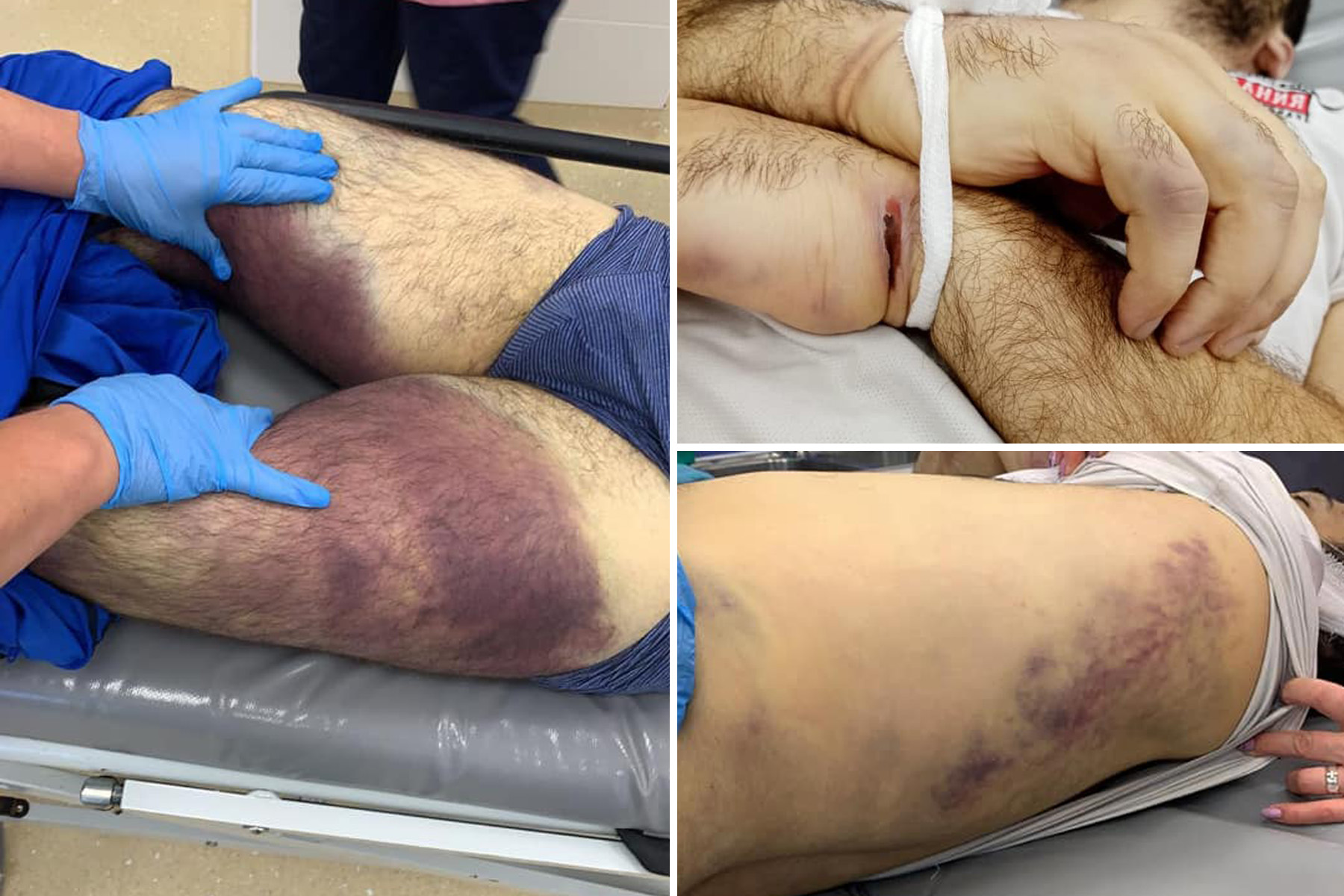
Two days later, South Ossetia’s Prosecutor General admitted the reports were ‘contradictory’ and vowed to follow up with additional forensic analyses involving those behind both previous reports.
Six days after the controversial Russian report, the opposition Nykhas Party published a video on Facebook with Nikolay Tskhovrebov, another suspect within the assassination attempt investigation who was also detained by police in August.
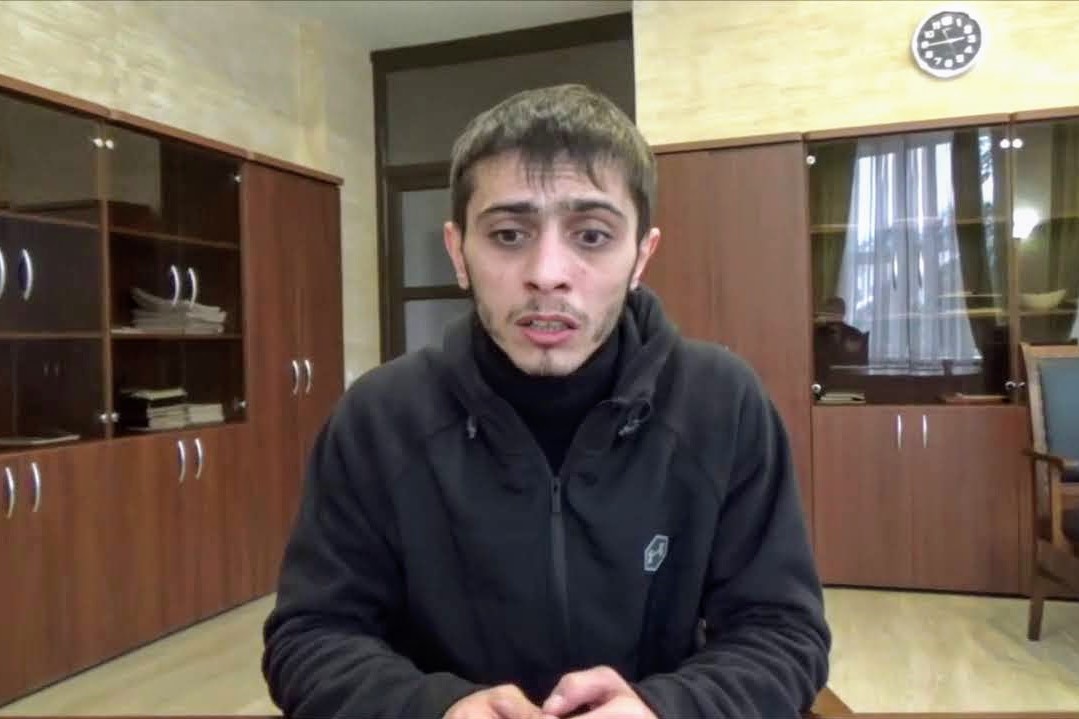
In his video address, Tskhovrebov claimed that police officers tortured him and Inal Dzhabiyev on the day Dzhabiyev died.
South Ossetian President ‘ditches Facebook’
South Ossetian President Anatoly Bibilov has remained defiant despite the protests. Bibilov has remained in power despite not being able to form a new government, as 17 out of 37 MPs are boycotting parliament.
On 15 December, 16 weeks after the government collapsed, the president complained that social networking sites were being used to wage an intensive ‘information attack’ against him.
‘I’ve exited Facebook’, he said.
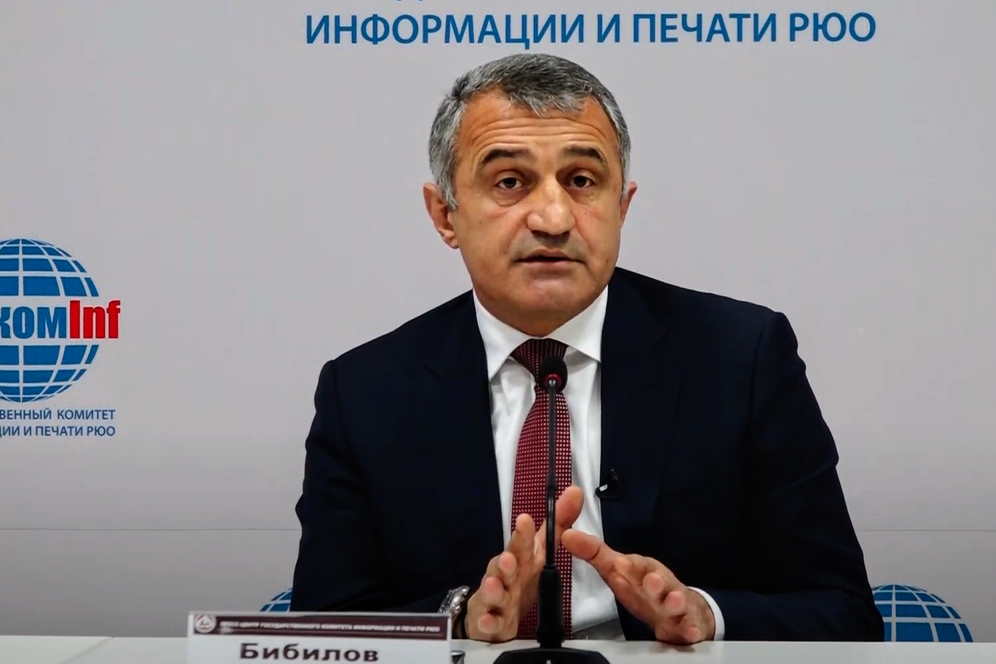
He also argued that former Interior Minister Igor Naniyev could not be prosecuted because only his subordinates committed a crime.
Bibilov has also blamed the opposition for the continuing crisis. He accused critics of ‘making’ Dzhabiyev’s family stand at the square to protest. He said that their political ambitions had caused the political crises in the region, not the death of Dzhabiyev at the hands of police.
The South Ossetian authorities have opened investigations into several key opposition leaders who voiced criticism over Dzhabiyev’s death, including Nykhas party leaders David Sanakoyev and Alan Gagloyev, and People’s Party Chair Aleksandr Pliyev.
[Read more on OC Media: South Ossetian authorities turn on opposition as political deadlock continues]
For ease of reading, we choose not to use qualifiers such as ‘de facto’, ‘unrecognised’, or ‘partially recognised’ when discussing institutions or political positions within Abkhazia, Nagorno-Karabakh, and South Ossetia. This does not imply a position on their status.






